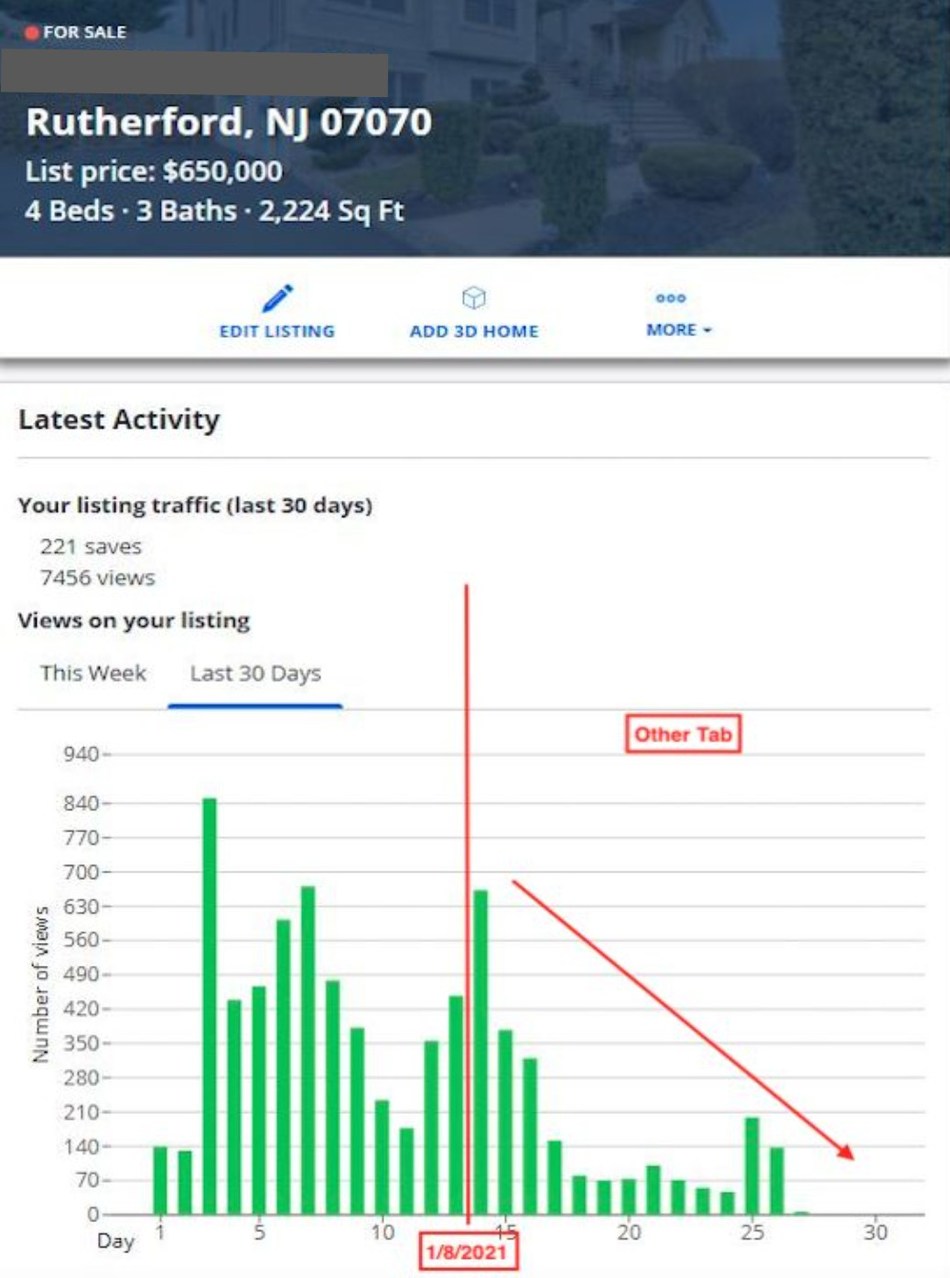REX’s complaint and preliminary injunction seeks relief from NAR and MLS rules meant to prioritize Big Brokers’ profits over American consumers
Austin, TX – March 9, 2021 (PRNewswire) On behalf of its clients and all American consumers concerned about competition and transparency in real estate, REX has filed a federal antitrust complaint in Seattle, Washington against Zillow, Trulia, and the National Association of Realtors (NAR). REX, a real estate technology company, is breaking the stranglehold that REX believes the NAR and its members have held over consumers for generations, resulting in fees that are two to three times higher than in most developed countries. REX filed the complaint after the company’s clients complained about the second-class treatment that non-cartel homes were receiving.
Recently, Zillow quietly began obtaining brokerage licenses throughout the country and then joined NAR and local associations. In January, as a part of its cooperation with NAR and MLSs, Zillow began moving homes out of its initial search results for sellers who chose not to use agents adhering to the NAR and local multiple listing service (MLS) practices which hike fees and lower customer service. REX is fighting against second-class status for anyone who wants to sell outside the NAR/MLS regime.
Prior to this significant update to Zillow’s platform, everyone had equal access. As the company celebrates its 15th anniversary, Zillow is straying from its disruptive roots by joining the Big Broker ranks. Evidence shows that deprioritizing non-MLS members – such as creating a separate page as Zillow has done – has significant impact on consumers looking to buy and sell real estate in the market. This separate page ultimately benefits NAR/MLS members while hurting consumers.
Once Zillow became a broker and began joining the NAR and MLSs, the company started subscribing to the same old practices that have caused Americans to pay the highest real estate commissions in the world. This practice forces home sellers to agree upfront to pay thousands of dollars in excess fees to the broker firm on the other side of the deal.

“Zillow began like so many other platforms: it served a great value to American consumers. Unfortunately, we see Zillow as backtracking on their original mission to serve consumers, instead focusing on their own profits,” said REX CEO Jack Ryan.
“We launched REX to put the consumer back in charge of real estate and transactions,” Ryan continued. “This case builds on the DOJ’s recent antitrust settlement with NAR/MLSs that beat back some anticompetitive practices. We believe this litigation will define whether technology will serve and protect Big Brokers and the NAR cartel or whether it will make good on its promise of greater ease, service, transparency and lower commission fees for consumers.”
In addition to lodging the antitrust complaint in federal court, REX filed a preliminary injunction motion asking for immediate relief.
The internet has radically altered how Americans shop for homes with technology replacing much of the historical labor costs of brokers in real estate transactions. Yet, the complaint alleges, the NAR and its members, Zillow and Trulia included, are using collusive tactics to restrain trade by forcing Americans to agree to abide by the NAR and MLSs’ association rules and paying traditionally high commissions to continue posting new listings to what was once a democratized digital platform.
REX’s complaint against Zillow and NAR comes on the heels of the DOJ’s November 2020 Federal lawsuit and proposed settlement against the NAR. REX assembled a legal team which includes antitrust experts and former leaders who drove antitrust investigations of digital platforms that consumers engage with every day. NAR is also facing a growing list of complaints and class actions in Federal and state courts filed by consumers concerned about fees, a lack of transparency, and outmoded practices that prioritize Big Brokers’ profits over consumers’ best interests.
Key Arguments Made By REX In The Complaint:
- Aggregator sites facilitate transactions that allow millions of Americans every year to relocate for new personal and professional opportunities.
- Direct consumer access to available homes—and the ability for licensed non-NAR, non-MLS brokers and agents to make homes directly visible to consumers—opens the pathway for new, innovative real estate service providers. And, critically, it introduces competition that benefits consumers through greater choice in output and downward pressure on traditionally high commission structures which lowers cost to consumers.
- After NAR and its MLS partners, which now includes Zillow, closed transparent access to home inventory by agreeing to private rules that disadvantage all but their own membership, consumers and competition will suffer.
- Consumers are harmed as is REX’s innovative and competitive model by the collusive agreements between the NAR and Zillow, along with their MLS affiliates. Zillow recently joined NAR-affiliated MLSs and imposed its associational rules to conceal all non-MLS listings on Zillow’s heavily trafficked websites.
About REX (rexhomes.com)
REX is resetting the traditional real estate broker model and upending how Americans interact with real estate — from buying and selling processes to managing all aspects of your home, including maintenance, landscaping, mortgage, escrow, title, insurance, and moving. REX is dramatically lowering costs and improving the consumer experience in real estate to help Americans unlock the wealth in their homes. We’re headquartered in Austin, TX and run by engineers, data scientists, and market experts with prior experience at Google, Facebook, Amazon, Apple and Uber. REX works as a partner in the global fight against housing insecurity. For every 50 homes sold at REX, the company builds a home for a family that would otherwise be unable to realize the dream of homeownership. Check out REX’s newsroom (newsroom.rexhomes.com) for the latest press releases, podcast episodes, market analysis, useful data for stories on tech and real estate, and information about the company.
CONTACT
Colin Maynard
cmaynard@rexhomes.com
(916) 834-4274
SOURCE REX







